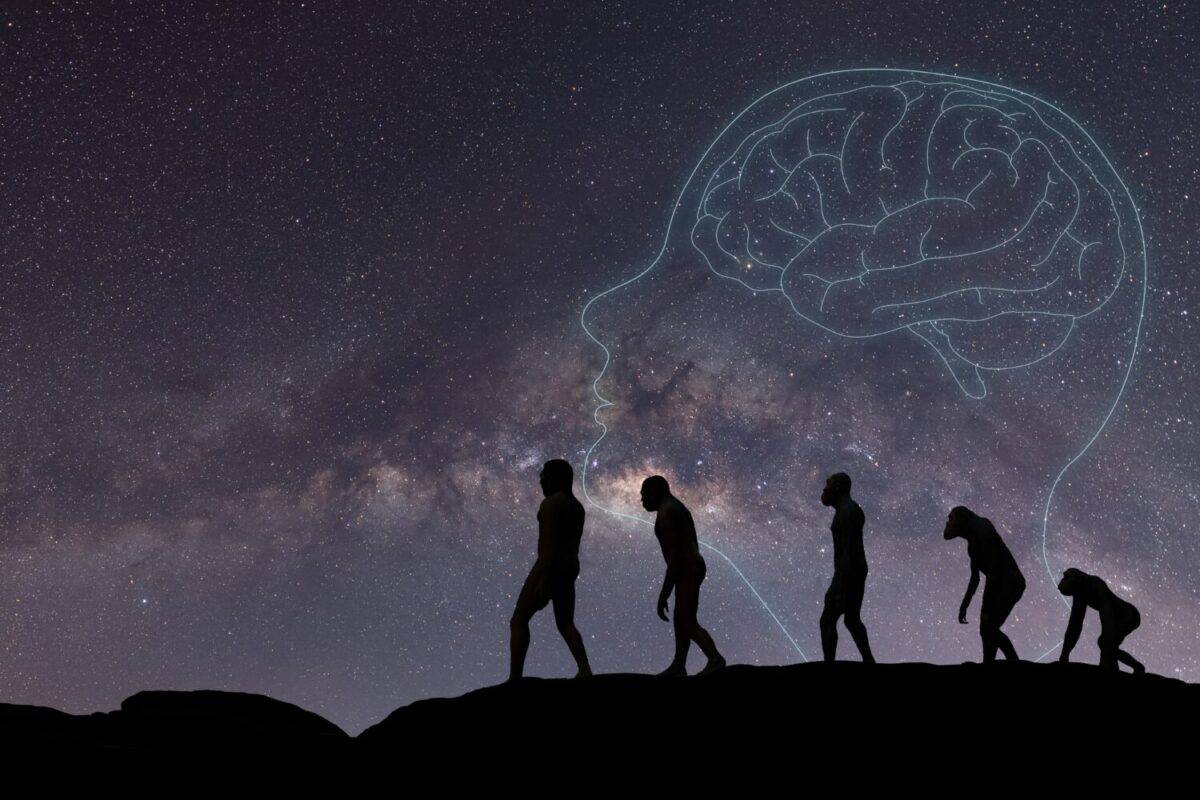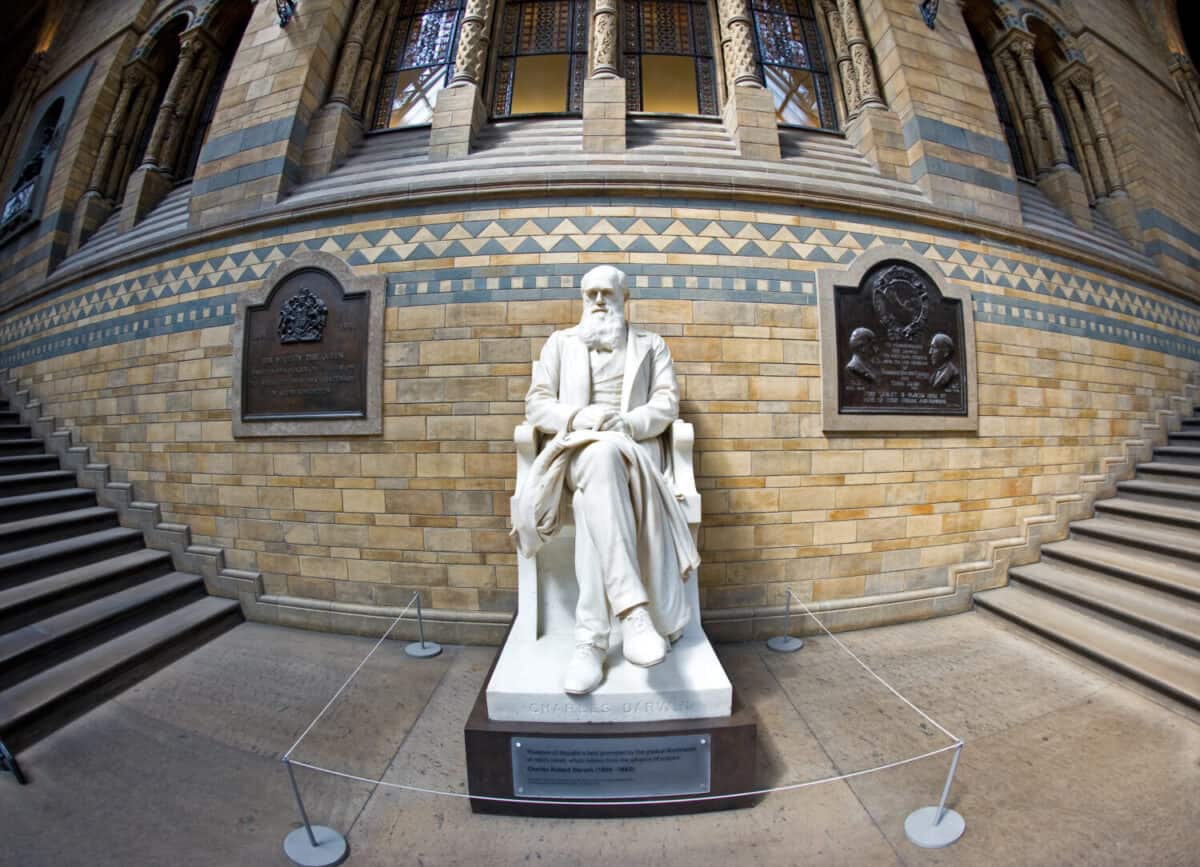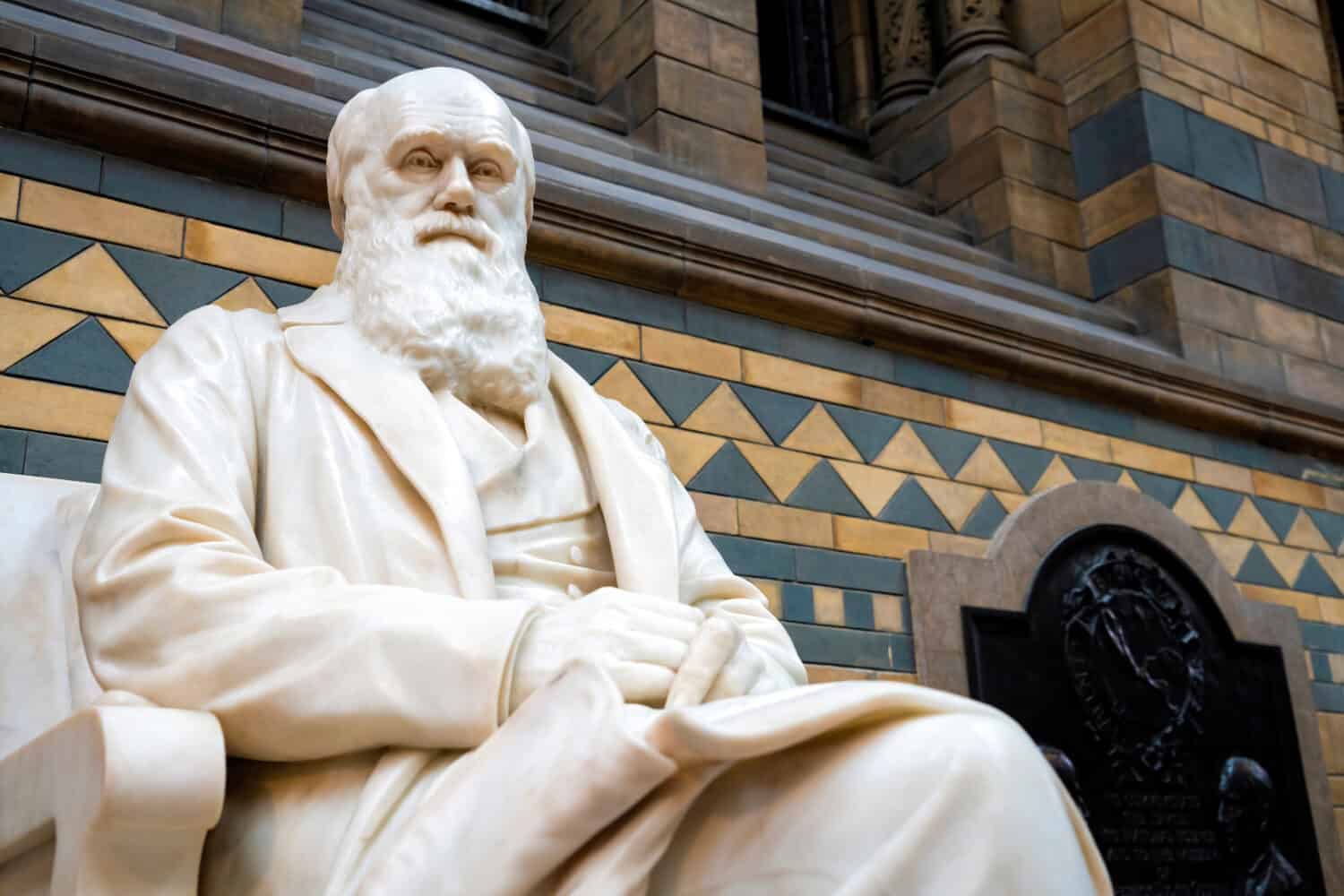The same day Abraham Lincoln took his first breath in a rustic Kentucky cabin, a legacy was being forged in a grand Georgian house in Shrewsbury, England. Charles Darwin, the very name synonymous with the pioneering theory of evolution, emerged from these contrasting backgrounds.
His work, reshaping our understanding of the science of life, prompts an intriguing question: Is Charles Darwin the smartest person history has seen? Let’s find out!
Charles Darwin’s IQ
Charles Darwin, the father of evolutionary biology, stands as a pillar in the annals of scientific thought. Living in an era before the advent of standardized IQ tests, it’s challenging to definitively quantify Charles Darwin’s intelligence.
Nonetheless, the weight and originality of his work in evolutionary biology suggest that had he taken a modern IQ test, he would likely have scored significantly above average. Some experts estimate his IQ to be around 165, although this remains speculative as Darwin never took a test.
His unwavering dedication to research, combined with an ability to synthesize vast amounts of information from various sources, showcases great cognitive prowess. His revolutionary contributions to science hint at a mind that was truly ahead of its time.

Unpacking Darwin’s Intellectual Prowess
Charles Darwin was more than just the originator of the theory of natural selection. He was a composite of multiple intellectual strengths that positioned him as one of the most influential thinkers in history.
So, what intellectual attributes set him apart? Let’s talk about it!
Innate Curiosity
From a young age, Darwin demonstrated an insatiable curiosity about the natural world. Whether it was the intricate design of seashells or the myriad bird species he observed, Darwin’s early fascination laid the groundwork for his later scientific pursuits. He wasn’t simply born into scientific excellence; he chased it with relentless curiosity.
Fieldwork and Observation
Darwin’s voyage aboard the HMS Beagle wasn’t just an excursion — it was an intellectual metamorphosis. During this period, he encountered the raw materials that would fuel his theory of natural selection. While many of his contemporaries were confined to libraries and salons, Darwin was out in the field, accumulating firsthand data. This treasure trove of observation granted him an unparalleled perspective on biodiversity.
Critical Analysis and Methodical Approach
Beyond merely gathering data, Darwin was adept at connecting the dots. His book, On The Origin of Species, wasn’t a spontaneous revelation but a meticulously crafted argument. Through sketches, extensive notes, and prolonged periods of introspection, he was able to synthesize disparate pieces of information into a coherent theory. It was this unique blend of detail-oriented analysis and broad conceptual thinking that distinguished him from his peers.
Challenging the Status Quo
Darwin’s theories were not only groundbreaking but also controversial. He dared to question centuries of established thought, effectively toppling conventional wisdom about the origins and development of life on Earth. It’s this fearless questioning of accepted truths that elevated his work from scholarly debate to a seismic shift in human understanding.
Intellectual Resilience
Darwin’s ideas weren’t met with universal acclaim; in fact, they attracted considerable criticism. Despite this, he never wavered in his commitment to the scientific method. Facing both institutional and societal resistance, Darwin continued to refine and defend his theories. His resilience in the face of adversity speaks volumes about his intellectual rigor and conviction.
Darwin’s intellectual prowess wasn’t confined to a single aptitude but was rather a tapestry of multiple skills and dispositions. Each played a role in the development of his groundbreaking theories, underscoring that his genius was not an accident but the product of a lifetime of intellectual cultivation.

Did Darwin Achieve Success by Chance?
Charles Darwin’s contributions to science were not mere luck or a one-time flash of brilliance. They were the outcome of relentless curiosity, rigorous observation, and a commitment to empirical research.
- The Unforgettable Voyage on HMS Beagle: Long before The Origin of Species graced bookshelves, Darwin’s voyage on the HMS Beagle laid the groundwork. Through keen observation and meticulous notes, he pieced together nature’s evolutionary puzzle, birthing the foundations of his famous theory.
- The Origin of Species – The Magnum Opus: Darwin’s The Origin of Species wasn’t merely a book; it revolutionized how we perceived life’s diversity. Within its chapters, Darwin eloquently presented the concept of natural selection, challenging millennia of established beliefs.
- A Naturalist Beyond Compare: From tropical rainforests to the English countryside, Darwin’s curiosity led him to investigate life in all its myriad forms. His observations, combined with critical thinking, created a canvas of biological interconnections, paving the path for his evolutionary theories.
- Perseverance in the Face of Adversity: Darwin’s theories weren’t universally accepted upon reveal. He faced staunch criticism, especially from religious quarters. However, undeterred by challenges, he remained resolute, refining, and defensive of his work with unwavering dedication.
- Legacy Etched in Stone: Darwin’s work resonates not only in scientific circles but also in the broader societal landscape, sparking debates around topics as vast as religion and ethics. Yet what truly makes his legacy enduring is the methodical approach and intellectual rigor he applied in his pursuit of truth.
Reflecting on Darwin’s life and achievements, it’s evident that his success wasn’t mere happenstance. It was the culmination of dedication, observation, and a relentless pursuit of understanding life’s intricacies.
Darwin’s Influence on Modern Biology
Diving into the vast ocean of biology, Charles Darwin’s impact is undeniably pervasive. His groundbreaking theories, once revolutionary, now serve as pillars of modern biology. Each year, countless research papers cite and build upon his foundational concepts.
Consequently, evolutionary principles steer everything, from understanding genetic disorders to developing new drugs. Moreover, the Tree of Life, which encapsulates the relationships among organisms, is deeply rooted in Darwinian ideas.
However, Darwin’s legacy isn’t limited to labs and classrooms. His work stirred societal currents, leading to the contentious evolution vs. religion debate. Prior to Darwin, the widely accepted narrative was one of divine creation.
Darwin’s natural selection, though, suggested life’s diversity emerged through adaptation and survival advantages. Thus, challenging established beliefs, his findings became a crucible for discussions around faith, purpose, and the origins of life.
Darwin in Historical Context
Placed against the 19th-century scientific landscape, Charles Darwin emerged as a transformative figure. At a time when biology was still nascent, his theories redefined our understanding of life’s intricacies. This wasn’t without controversy. Some contemporaries vehemently opposed Darwin’s ideas, labeling them blasphemous and radical.
However, it wasn’t just the clergy that resisted; even certain scientists were skeptical. Nevertheless, throughout this maelstrom, there were allies. Figures like Thomas Huxley, aptly named “Darwin’s Bulldog“, championed evolutionary theories.
Additionally, his exchanges with Alfred Russel Wallace, who had independently formulated a similar evolutionary theory, were particularly notable. While they could have been fierce rivals, mutual respect and recognition characterized their relationship.
While we can’t give a definitive answer to whether or not Charles Darwin was the smartest person ever, we can reflect on his profound influence and discoveries. Operating in a period of immense scientific exploration, Darwin’s enduring legacy is a testament to his intellectual excellence and unparalleled impact on science and society.
Final Thoughts
Navigating the labyrinth of history, few figures loom as large as Charles Darwin, especially in the realm of biology. His indelible mark on science, punctuated by his revolutionary theories, has solidified his place among the pantheon of intellectual giants.
The discourse around Charles Darwin’s IQ, while intriguing, pales in comparison to the tangible impact of his work. After all, the true measure of intellect isn’t merely in scores or estimations, but in the legacy left behind. Amidst luminaries of history, Darwin’s brilliance shines undimmed, a beacon of curiosity, perseverance, and transformative insight.
Want to Retire Early? Start Here (Sponsor)
Want retirement to come a few years earlier than you’d planned? Or are you ready to retire now, but want an extra set of eyes on your finances?
Now you can speak with up to 3 financial experts in your area for FREE. By simply clicking here you can begin to match with financial professionals who can help you build your plan to retire early. And the best part? The first conversation with them is free.
Click here to match with up to 3 financial pros who would be excited to help you make financial decisions.
The image featured at the top of this post is ©ShutterStockStudio/Shutterstock.com.
